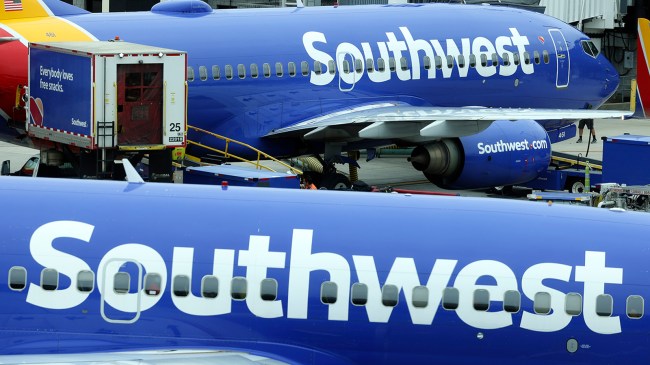Getty Image
The cans of soda that get passed out on an airplane tend to be pretty low on the list of things people need to worry about while flying, but that’s apparently not the case with flight attendants on Southwest Airlines who’ve been injured in the line of duty thanks to a spree of freak accidents that have transpired over the course of the summer.
Soda companies obviously do what they can to design cans that won’t spontaneously explode under normal conditions, and I’m willing to bet the average person isn’t aware the pressurized containers come with some built-in safeguards meant to mitigate the risks stemming from abnormal scenarios.
That includes exposure to extreme heat, which can cause the carbon dioxide molecules that are responsible for giving soda its signature fizz to move at rapid speed to the point where a can has the potential to explode (the top part of the container is engineered to expand to reduce the possibility of that outcome).
According to CBS News, close to two dozen flight attendants manning the skies for Southwest Airlines this summer have learned that the hard way due to a string of incidents involving exploding soda cans that have caused at least 20 injuries (including one that was severe enough to require stitches).
The carrier doesn’t serve any items on its planes that need to be refrigerated and subsequently has no need for temperature-controlled trucks many other airlines use to transport soda and other perishables. However, that means the cans can spend hours exposed to record-high heat in scorching Southwest hubs including Las Vegas, Phoenix, and multiple cities in Texas.
That’s led to soda in those locations (and others) being loaded onto planes at above-average temperatures that don’t adequately abate by the time drink service begins, and the rapid release of pressure that occurs when the tab is popped can cause the cans to explode with enough force for the aluminum to slice through the hand of the person holding them.
No passengers have been harmed during the incidents that also create quite a mess in the cabin, and Southwest says it’s instituted new policies (including temperature monitoring and the use of coolers) in the hopes of addressing the issue.

